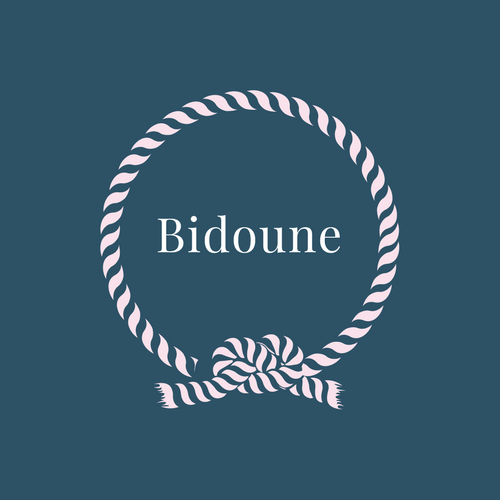Outdoor Education
The direction ahead
Three paradigms to consider moving into the future
The Fear of Reflection or Hunger for Deliberate Learning?

One of the biggest anxieties in education is running a session that is perceived as boring. This fear is particularly acute when it comes to reflection. We worry that students will tune out, roll their eyes, or complain that the activity isn't "fun" enough. This fear often leads us to either skip reflection entirely or rush through a perfunctory debrief.
This fear was put to the test in a powerful way this summer. I recently led a G9 trip with our partner APA to Mongolia. The scenery was, of course, breathtaking, the history was immersive, and the activities were challenging and fun. But the most profound experience for me was in a two-hour reflection we called "Life Run."
At the outset, getting teenagers to sit and reflect for 120 minutes felt like trying to make a river run uphill. Yet by the end, when I asked them if the activity had been useful, the response was a near-unanimous "yes." When probed, students offered insights like, "It's been so busy, and slowing down to reflect was useful," and "I had so many great experiences, but I couldn't process them all until now. The questions and activities helped facilitate my reflection." Later, when I asked if we should remove the reflection, the answer was clear: keep it. This was an undeniable signal that when reflection is designed well, it becomes a crucial, and desired, part of the learning journey.
We know that self-awareness is a key skill, and reflection is part of that journey. But how do we ensure that students look forward to those reflection and debrief sessions? As Yen Kai once put it, you can lead a horse to water, but you can't force it to drink. Similarly, you can run an OE program, but you can't force students to reflect. Yen Kai then posits: "How do we make the horse thirsty?" What can we do to ensure students, similar to those on the Mongolia trip, look forward to and ask for those sessions of reflection? This is the journey we are on.
This fear was put to the test in a powerful way this summer. I recently led a G9 trip with our partner APA to Mongolia. The scenery was, of course, breathtaking, the history was immersive, and the activities were challenging and fun. But the most profound experience for me was in a two-hour reflection we called "Life Run."
At the outset, getting teenagers to sit and reflect for 120 minutes felt like trying to make a river run uphill. Yet by the end, when I asked them if the activity had been useful, the response was a near-unanimous "yes." When probed, students offered insights like, "It's been so busy, and slowing down to reflect was useful," and "I had so many great experiences, but I couldn't process them all until now. The questions and activities helped facilitate my reflection." Later, when I asked if we should remove the reflection, the answer was clear: keep it. This was an undeniable signal that when reflection is designed well, it becomes a crucial, and desired, part of the learning journey.
We know that self-awareness is a key skill, and reflection is part of that journey. But how do we ensure that students look forward to those reflection and debrief sessions? As Yen Kai once put it, you can lead a horse to water, but you can't force it to drink. Similarly, you can run an OE program, but you can't force students to reflect. Yen Kai then posits: "How do we make the horse thirsty?" What can we do to ensure students, similar to those on the Mongolia trip, look forward to and ask for those sessions of reflection? This is the journey we are on.
The Purpose of the Journey

In outdoor education, we are in danger of focusing on the "nouns" of the experience—the location, the activity, the exciting destination—when our real purpose is to facilitate the "verbs" of growth. A common tension arises as parents, students, and sometimes even staff, focus on the tangible: "This group went to Nepal, but we're only going to Borneo." We hear questions like, "Why is my child not getting on this trip?" This is the noun, and while it's important for building enthusiasm, are we in danger of missing the entire point of the expedition?
Our curriculum at UWCSEA is built on four core strands—Understanding/Managing Self, Connection with Others, Connection with Nature, and Expedition Skills. These are the "verbs" of our program, the real purpose behind every trip. So how do we shift the conversation from the location and activities to the learning outcomes? It's not as "sexy" a conversation to tell a teenager they're going on a trip to "grow as a person." But if we don't, we risk falling into the trap of confusing consistency of location with consistency of learning.
If we can shift to consistency of learning, the conversation can then focus on personalized learning instead of personalized activity/destination. Only then can we adapt activities for the right amount of challenge and provide support to ensure students do not feel overwhelmed. We start to discuss which grouping will allow students to learn more from each other, as compared to simply putting a child with their best friend.
This leads us to a new tension: The Narrative. Do we need to shift the conversation in the same way for all our audiences? Perhaps the narrative for students is, and should be, different from the narrative for adults. For students, the focus on the destination and the activity—the "noun"—is what builds the initial excitement and motivation. We can use that energy to get them on the trip. But the narrative for our parents and our educators must be the "verb": the intentional learning outcomes, the deliberate curriculum, and the personal growth that occurs. We can use that narrative to build trust and shared purpose, ensuring everyone understands the profound "why" behind what we do. So how do we manage these two different narratives?
Our curriculum at UWCSEA is built on four core strands—Understanding/Managing Self, Connection with Others, Connection with Nature, and Expedition Skills. These are the "verbs" of our program, the real purpose behind every trip. So how do we shift the conversation from the location and activities to the learning outcomes? It's not as "sexy" a conversation to tell a teenager they're going on a trip to "grow as a person." But if we don't, we risk falling into the trap of confusing consistency of location with consistency of learning.
If we can shift to consistency of learning, the conversation can then focus on personalized learning instead of personalized activity/destination. Only then can we adapt activities for the right amount of challenge and provide support to ensure students do not feel overwhelmed. We start to discuss which grouping will allow students to learn more from each other, as compared to simply putting a child with their best friend.
This leads us to a new tension: The Narrative. Do we need to shift the conversation in the same way for all our audiences? Perhaps the narrative for students is, and should be, different from the narrative for adults. For students, the focus on the destination and the activity—the "noun"—is what builds the initial excitement and motivation. We can use that energy to get them on the trip. But the narrative for our parents and our educators must be the "verb": the intentional learning outcomes, the deliberate curriculum, and the personal growth that occurs. We can use that narrative to build trust and shared purpose, ensuring everyone understands the profound "why" behind what we do. So how do we manage these two different narratives?
The Power of the system

Finally, the engineer in me would be remiss not to mention our focus on systems and processes. There is a prevailing romanticism in outdoor education—a belief that our work should be as organic and hands-on as the wilderness itself. We can sometimes view technology and automation as a sterile intrusion, something that detracts from the human-centered nature of our mission. This is the tension we live with: the love of the manual contrasted with the efficiency of the machine.
But what if the point of a good system is not to remove the human element, but to liberate it? As author Cal Newport argues, when we manage and automate the "shallow work," we create the space for "deep work." Similarly, we believe that by systemizing the predictable tasks, we can free up our energy for the human-centered work that truly matters.
Over the past year, we have made significant progress by developing an in-house app to streamline our processes. In the coming years, we will continue to redefine how we handle trip administration to improve efficiency and reporting. This isn't about removing the human element; it's about building a sturdy ship so that when the unpredictable arrives—a challenge in the wilderness —we have the readiness and presence to meet it with intention and care.
But what if the point of a good system is not to remove the human element, but to liberate it? As author Cal Newport argues, when we manage and automate the "shallow work," we create the space for "deep work." Similarly, we believe that by systemizing the predictable tasks, we can free up our energy for the human-centered work that truly matters.
Over the past year, we have made significant progress by developing an in-house app to streamline our processes. In the coming years, we will continue to redefine how we handle trip administration to improve efficiency and reporting. This isn't about removing the human element; it's about building a sturdy ship so that when the unpredictable arrives—a challenge in the wilderness —we have the readiness and presence to meet it with intention and care.
The Journey ahead
The journey from interim to integral has been an incredible one. It has reaffirmed my belief that the most profound education happens when we are intentional about the learning, when we are courageous enough to shift the conversation from nouns to verbs, and when we are wise enough to use systems to support the human experience, not replace it. I am excited about what lies ahead and deeply grateful for the great team that I work with, the support of the school leadership, and our trusted partners. The journey has only just begun. I am excited to see how, together, we can continue to be more deliberate in our learning, courageous in our narratives, and intentional in the systems that support our most profound human work.
Similar articles that you might like:

